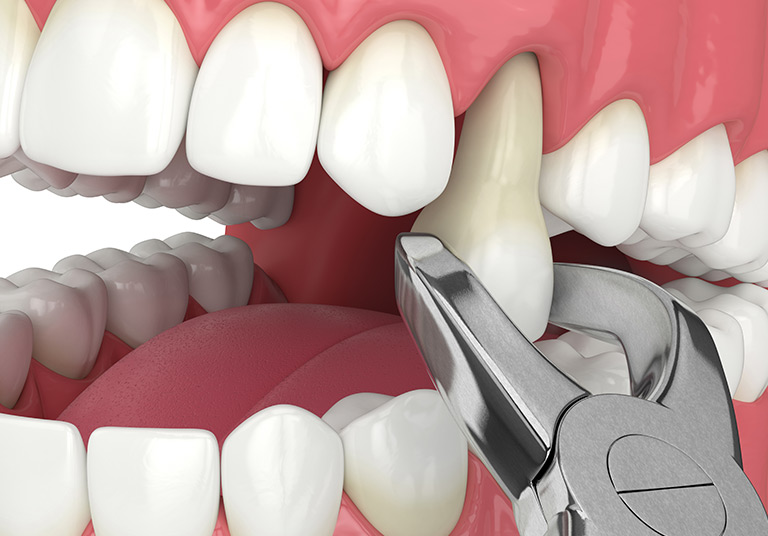As much as we try to take good care of our teeth, there are times when a tooth extraction may be necessary. But how do you know when it’s time to say goodbye to a tooth? Here are 7 signs that may indicate you need a
tooth extraction:
Severe Tooth Pain
Tooth pain can be caused by many different things, but if the pain is severe and persistent, this could be a sign that there is an underlying issue with the tooth that cannot be fixed with other treatments such as fillings or root canals.
Infection or Abscess
An infection or abscess in the tooth can cause throbbing pain, swelling, and pus around the affected area. This is a serious condition that requires immediate attention from a dentist. If left untreated, the infection can spread to other areas of the mouth and even throughout the body.
Damage or Trauma to the Tooth
Accidents happen, and sometimes they can result in damage or trauma to a tooth. If a tooth is cracked, broken, or knocked out, it may need to be extracted if it cannot be saved through other means. It’s important to seek dental care immediately after experiencing any kind of dental trauma.
Crowding or Misalignment
Sometimes teeth can become crowded or misaligned, making it difficult for them to erupt properly. In these cases, a tooth extraction may be necessary in order to create enough space for other teeth to grow in correctly or for orthodontic treatment.
Impacted Wisdom Teeth
Wisdom teeth, also known as third molars, can become impacted when there is not enough room in the jaw for them to fully erupt. This can lead to pain, infection, and damage to surrounding teeth. In these cases, wisdom teeth are usually removed through a tooth extraction.
Tooth Decay or Damage Beyond Repair
When a tooth has extensive decay or damage that cannot be repaired through other means such as fillings or crowns, it may need to be extracted. This is often the last resort when all other treatment options have been exhausted.
Preparation for Orthodontic Treatment
In some cases, a tooth extraction may be necessary in order to prepare for orthodontic treatment. Removing certain teeth can help create more space for proper alignment and positioning of the remaining teeth.
Prevention Tips
While tooth extractions may be necessary in some cases, there are steps you can take to prevent them from happening. Maintaining good oral hygiene practices, such as brushing twice a day, flossing daily, and visiting your dentist regularly can help prevent tooth decay and other issues that may lead to extractions. Additionally, wearing a mouthguard during sports or other high-risk activities can protect your teeth from trauma.
Tooth extractions are sometimes necessary in order to maintain oral health and prevent further damage or infection. However, with proper prevention techniques and regular dental care, you can reduce the chances of needing a tooth extraction. If you do require a tooth extraction, your dentist will work with you to determine the best course of treatment and ensure a comfortable and successful procedure.
Our dentists are provide high-quality dental care, including tooth extractions when needed. If you are experiencing any pain or discomfort in your teeth, it is important to
schedule an appointment with us as soon as possible. Our dentists will conduct a thorough examination and determine the best course of treatment for your individual needs.


